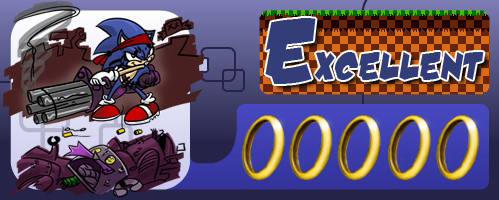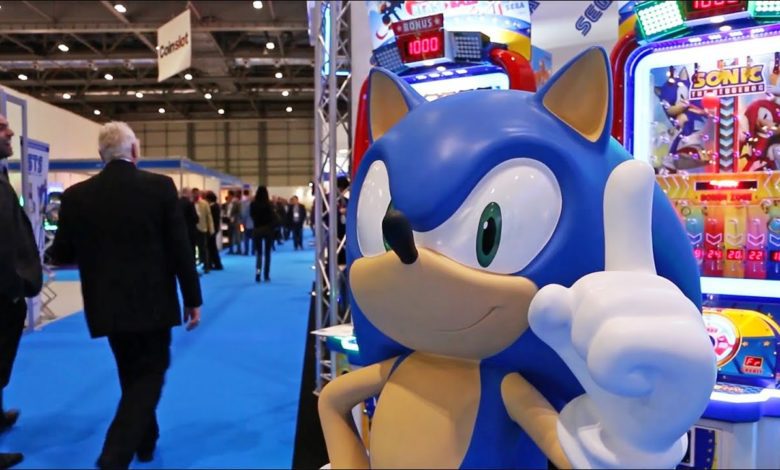
To create some positive hype ahead of Crazy Taxi: City Rush’s release, the latest entry and re-imagining of SEGA’s classic Crazy Taxi franchise, SEGA slashed the price of the smartphone version of the original Crazy Taxi to free.
While I’m not the biggest fan of repurchasing retro games I already own, I do enjoy playing these classics on modern platforms, so I hopped at the chance to get Crazy Taxi free and downloaded it in a heartbeat.
For those completely out of the loop, Crazy Taxi, as the name suggests, is an unorthodox game about driving cabs and taking passengers to their destination. The fun factor stems from the awesome arcade driving mechanics of the car complete with crazy boosting and drifting.
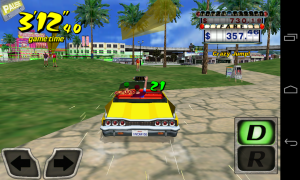
Despite the fact that the game is completely over the top, it feels realistic and relatively grounded. This unique trait can be attributed to the open world inspired by the city of San Francisco. What’s even more astonishing is Crazy Taxi predates the popularity of physics engines such as Havoc by several years, yet the environments are incredibly responsive.
In addition, to bumping into the vehicles on the road, you can charge through benches, crates, phone booths and much more. Each object responds appropriately depending on their weight and your momentum. The physics are best demonstrated against other vehicles on the road, with similar-sized vehicles knocked out of the way quite easily, and they don’t take away to much from your momentum.
However, running into pickups causes the taxi to take a significant hit in momentum. Buses and trucks on the other hand are heavy enough to withstand your momentum and hold their ground. I had a lot of fun trying to unsuccessfully tip a truck over, but it is physically impossible for my feeble taxi to accomplish that feat. Perhaps if I got Gus’ heavy taxi I would’ve succeeded.
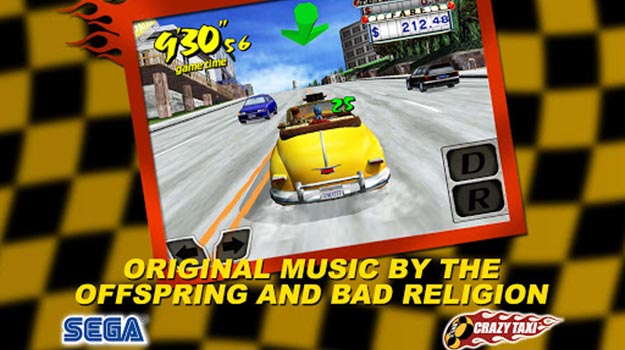
The arcade/console game has transitioned to smart phones surprisingly well. Technically, everything that made the original games so legendary has been included in the smartphone version, including the OffSpring and Bad Religion soundtracks.
There are some omissions, like being able to set the density of the traffic and product placements, like Pizza Hut and Levi’s. While I’d have liked the option to change the traffic density, the lack of Pizza Hut signs didn’t bother me much. I mean if you’re focused on your goal of delivering passengers to their destination as fast as you can, you probably won’t even notice the altered names.
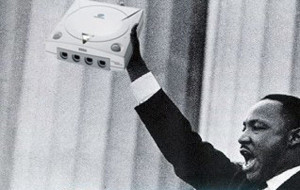
Initially, I did encounter some problems with the touch screen interface (I did not even bother testing the tilt controls) especially since the developers were forced to change the commands for drifting and dashing. The original game required us to shift gears from reverse to drive and accelerate to boost. The iPhone required me to double tap the virtual D button, and it took some getting used to, but, in the end, it enabled me to boost a lot more easily than in the original.
Ultimately, I still prefer playing the original on Dreamcast, but that is nostalgia talking.
In conclusion, Crazy Taxi has aged extremely well, and the world is still as endearing as it was in 1999. It has clearly influenced the video game industry as a whole, and it still holds its own today. Additionally, the game’s physics are more weighted and responsive than the best of games powered by the Havoc or PhysX engines.
If you haven’t already played Crazy Taxi, you should definitely check it out. If you have, this is the perfect opportunity to experience and master it again. After all these years, I still can’t beat S-4 in the Crazy Box.


